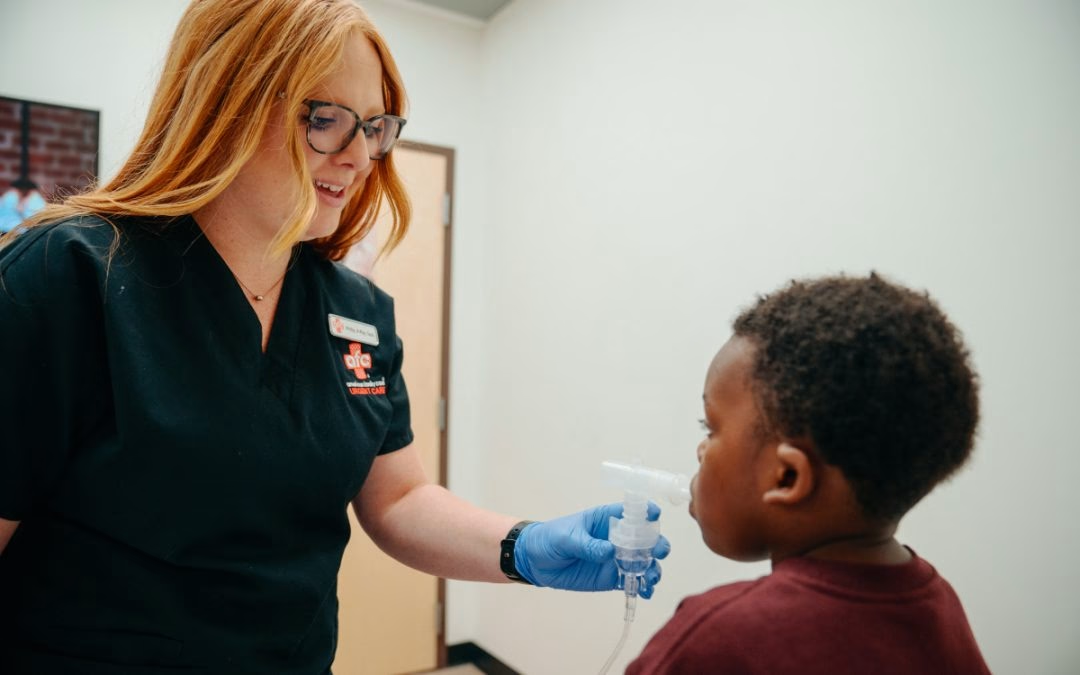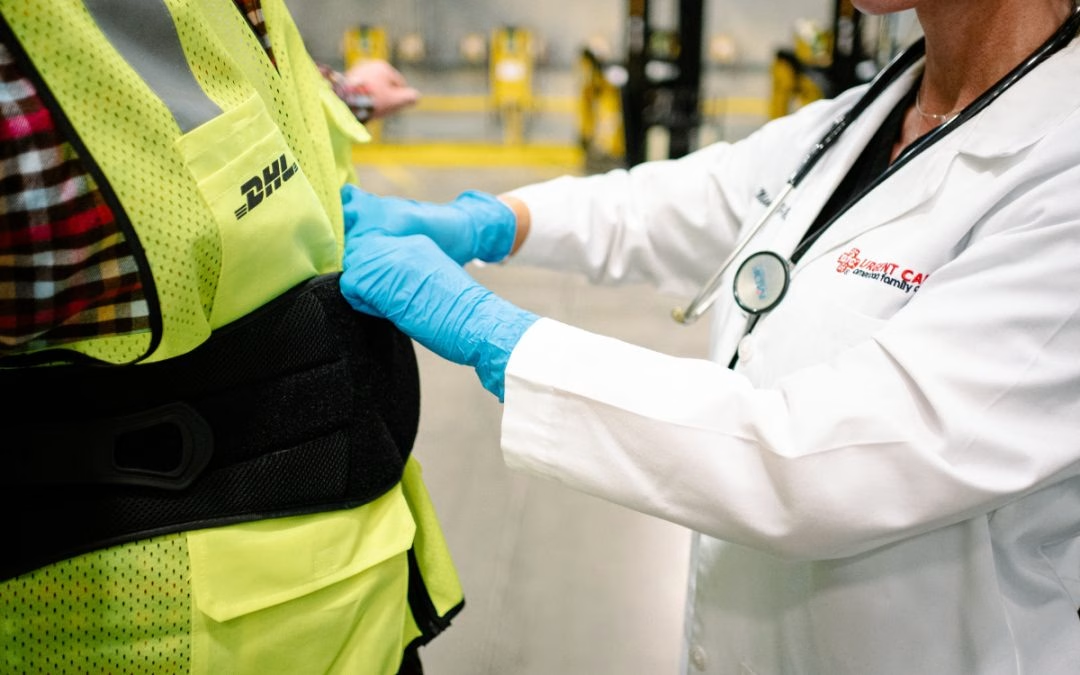
As winter approaches, illnesses like colds, flu, and respiratory infections become more common. Among these is walking pneumonia—a milder form of pneumonia that can still cause discomfort and disrupt daily life. In Ballantyne, staying healthy is essential, especially with so many outdoor activities to enjoy in the local area. Understanding the symptoms of walking pneumonia and knowing when to seek medical care can help you stay ahead of this illness.
Walking Pneumonia Defined
Walking pneumonia, medically referred to as atypical pneumonia, is a lung infection that’s less severe than traditional pneumonia. It’s called “walking” pneumonia because many people with this condition feel well enough to continue their daily routines without needing bed rest or hospitalization. Despite being less severe, walking pneumonia still requires attention to prevent complications or a prolonged illness.
Common Causes of Walking Pneumonia
Walking pneumonia can be caused by:
- Bacteria: Mycoplasma pneumoniae is the most common bacterial cause.
- Viruses: Certain respiratory viruses can lead to this mild form of pneumonia.
- Fungal Infections or Mold Exposure: In rare cases, exposure to mold or fungi can trigger pneumonia-like symptoms.
The infection affects the air sacs in the lungs, causing them to fill with mucus, which leads to symptoms such as coughing and chest congestion.
Symptoms of Walking Pneumonia
Symptoms of walking pneumonia often develop gradually and may mimic those of a cold or flu. Common symptoms include:
- Persistent cough
- Sneezing
- Headache
- Body aches
- Mild fever
- Chest congestion or discomfort
- Sore throat
- Fatigue
Unlike regular pneumonia, the symptoms are usually mild, making it easier to overlook the condition. However, even mild cases can worsen if left untreated, particularly for individuals with weakened immune systems or underlying conditions such as asthma.
How Walking Pneumonia Spreads
Walking pneumonia is contagious and spreads through respiratory droplets when an infected person coughs or sneezes. The incubation period ranges from two to four weeks, meaning you can transmit the illness to others even before symptoms appear.
How to Prevent Walking Pneumonia
While walking pneumonia is less severe than other respiratory illnesses, prevention is key to avoiding its uncomfortable and sometimes lingering symptoms. Here are some tips to reduce your risk:
- Get a Flu Shot: The flu can weaken your immune system, increasing the risk of developing pneumonia as a secondary infection. Protect yourself by getting an annual flu vaccine.
- Practice Good Hygiene: Wash your hands frequently with soap and water, especially after being in public places or around people who are sick.
- Sanitize Surfaces: Regularly clean high-touch surfaces like doorknobs, phones, and countertops to minimize the spread of germs.
- Avoid Contact with Sick Individuals: Limit close contact with people who are coughing or showing signs of respiratory illness.
- Boost Your Immune System: Stay healthy by eating a balanced diet, staying hydrated, exercising regularly, and getting adequate sleep.
Diagnosing and Treating Walking Pneumonia
If you suspect walking pneumonia, seeking a medical diagnosis is essential. At AFC Ballantyne, our medical providers are equipped to evaluate your symptoms and provide a thorough diagnosis.
Diagnosis Steps Include:
- Physical Exam: Your provider will listen to your lungs for signs of wheezing or congestion and ask about your symptoms and medical history.
- Chest X-Ray: Imaging can confirm whether mucus buildup is present in the lungs, a key indicator of pneumonia.
- Blood Tests: These can identify underlying infections and help determine the cause of your illness.
The treatment for walking pneumonia depends on the cause:
- Bacterial Cases: Antibiotics are prescribed to eliminate the infection.
- Viral Cases: Over-the-counter medications such as acetaminophen or ibuprofen can alleviate symptoms while the body fights off the virus.
- Supportive Care: Rest, hydration, and a healthy diet play crucial roles in recovery. Using a humidifier or taking steam inhalation can also help ease chest congestion.
Walking pneumonia typically lasts four to six weeks, but proper care can shorten recovery time and prevent complications.
When to Seek Medical Care at AFC Ballantyne
While walking pneumonia is generally mild, it’s important to seek medical attention from our clinic if you experience any of the following:
- Symptoms that persist for more than a week without improvement.
- High fever or chills.
- Difficulty breathing or shortness of breath.
- Severe fatigue that interferes with daily activities.
- Chest pain that worsens with breathing or coughing.
Our clinic provides same-day care for walking pneumonia and other respiratory illnesses. Our facility is equipped with on-site lab testing and X-ray services, allowing us to deliver fast, accurate diagnoses and personalized treatment plans. Walking pneumonia may not be as severe as traditional pneumonia, but it’s still important to take it seriously. By recognizing the symptoms early and seeking timely care, you can recover quickly and reduce the risk of spreading the illness to others.
At AFC Urgent Care Ballantyne, our experienced providers are here to help you stay healthy this winter. Whether you need a flu shot, diagnostic services, or treatment for walking pneumonia, we’re open seven days a week with extended hours for your convenience. Visit us today or pre-register online to prioritize your health this season.


